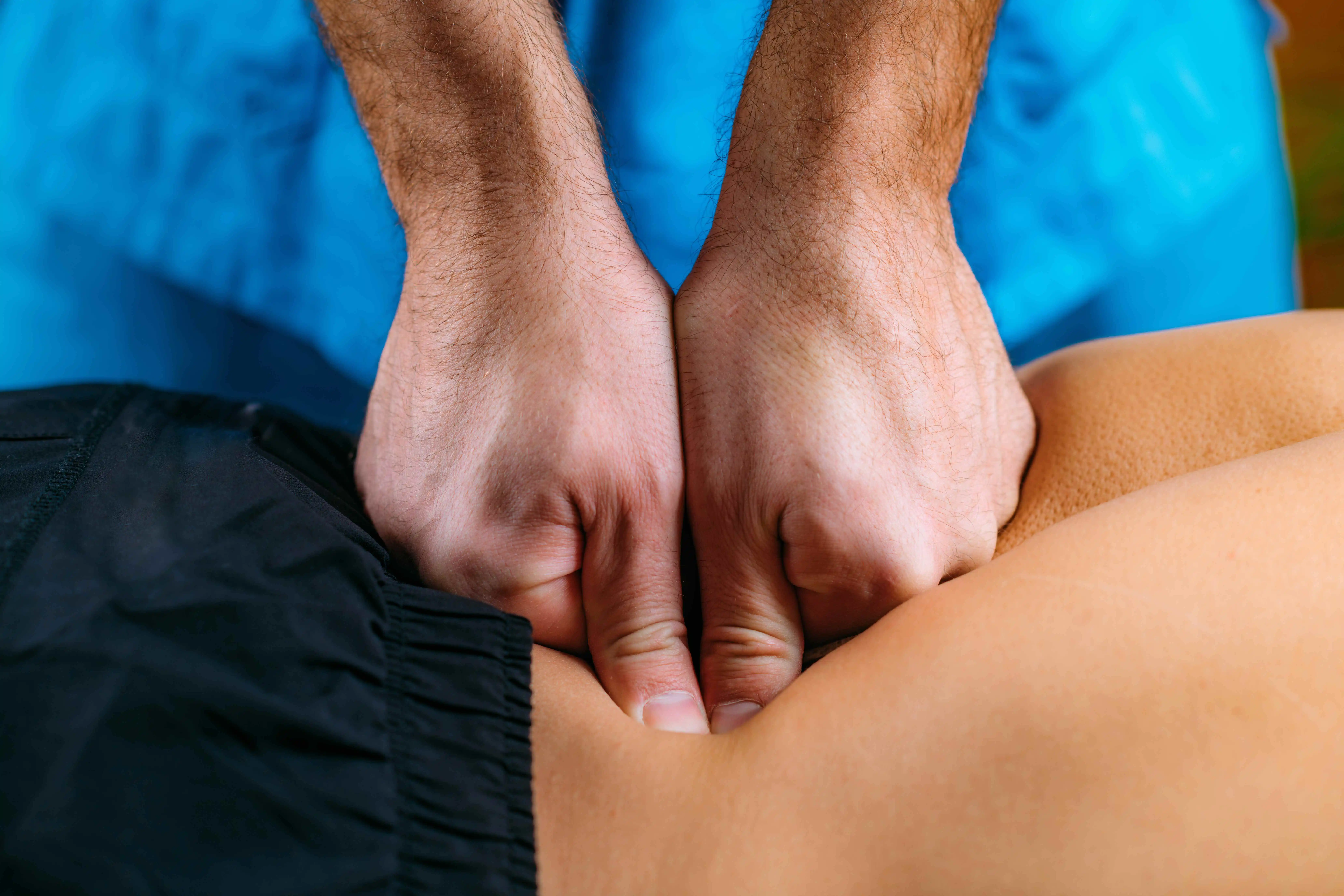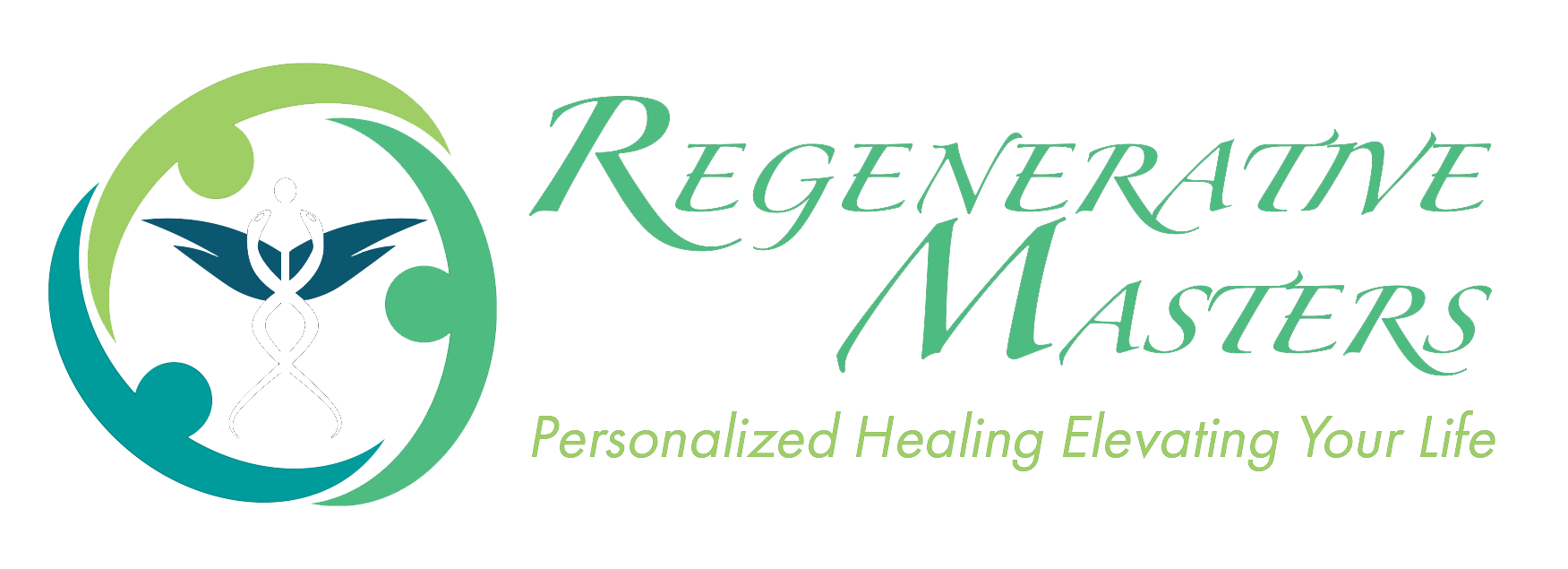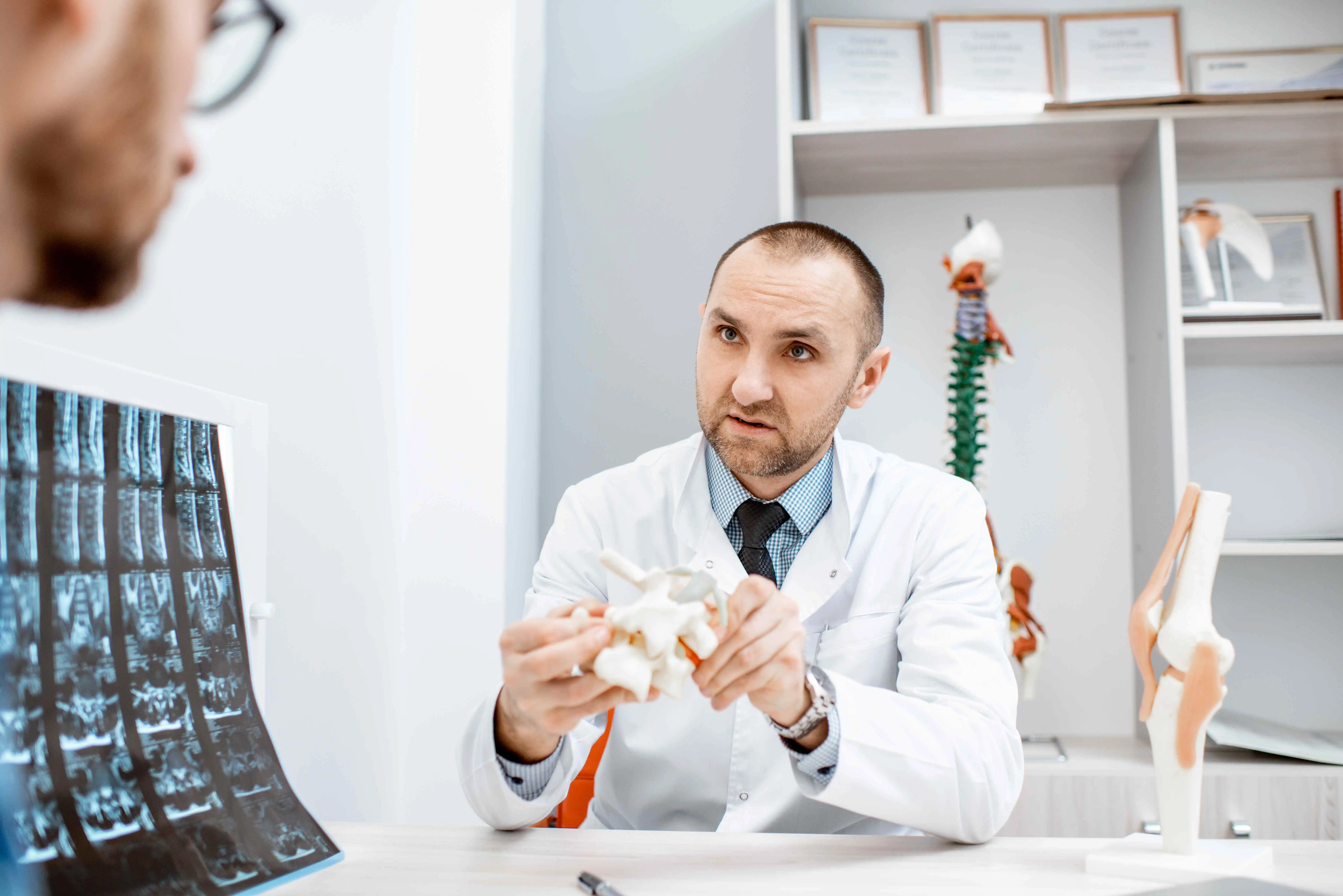A herniated spinal disc is a severe injury that can significantly impact your quality of life. In today’s advanced age of medical technology, surgery is not your only option, as several non-invasive methods are available. One ground-breaking non-surgical treatment for herniated discs is regenerative therapy which employs advanced stem cell technology to offer a more holistic solution.
Before we explore the different options that offer non-surgical treatment for herniated discs, let’s dive deeper into the anatomy of a herniated disc and learn more about causes, signs, symptoms, etc.
Anatomy of a Herniated Disc
Your spinal cord comprises 23 alternating discs and 33 bones or vertebrae. These vertebrae help protect the spinal cord, i.e., the nerve fibers directly linked to the brain stem.
The 23 discs, on the other hand, are made of thick, gel-like cartilage that performs multiple functions like:
- Provide flexibility for your spine
- Intervertebral spacing
- Spinal alignment
- Shock absorption
When a disc ruptures or herniates, its outer layer gets torn, and the gel-like inner substance leaks into surrounding areas. This aggravates the spinal nerves, leading to severe inflammation and pain.
Herniated discs usually occur in the lower back and can interfere with your daily life. Doctors typically prescribe an MRI for diagnosing a herniated or ruptured disc, as an X-ray is not definitive enough.
The early symptoms of a herniated disc manifest in different ways across patients. Here’s a list of some general signs and symptoms of a ruptured disc.
Signs and Symptoms of a Herniated Disc
- If the herniated disc is located in your lower back, you may experience pain or numbness in your buttocks, thighs, and calves.
- Some people experience pain in the foot, too.
- When the affected disc is located in your neck, you can experience a burning pain in your shoulder or arm.
- The pain can even shoot up your arm or leg when you cough, sneeze or move into certain positions.
- Patients with herniated discs often experience numbness or tingling in the affected areas.
- Additionally, the muscles in the affected areas tend to lose strength over time. This can lead to loss of motor abilities, i.e., leading you to stumble or affecting your ability to lift or hold certain/heavy items.
You should consult a doctor if you experience frequent back or neck pain traveling down your arm or leg. You should also see a specialist if you experience numbness, tingling, or weakness in your hands and feet.
Now that you know what to look for, let’s explore non-surgical treatment for herniated discs.

Short-Term Non-Surgical Treatment for Herniated Disc
Here are some short-term treatment options you can use to get immediate pain relief when suffering from a herniated or ruptured disc:
- Ice or Cold Compress: As discussed above, pain and inflammation often accompany a herniated disc. Many orthopedic specialists recommend applying an ice pack over the affected area to reduce the swelling and pain.
However, a cold compress treatment is less effective after 48 hours. It’s most useful for immediate pain relief.
- Hot Compress or Hot and Cold Compress: In some cases, a hot or hot compress can provide effective pain relief for the first 48 hours after the onset of pain.
- Pain Medication: When discussing non-surgical treatment for herniated discs, an orthopedic physician can prescribe a non-steroidal anti-inflammatory medicine or NSAID like ibuprofen to provide immediate pain relief and lower inflammation.
However, take care not to rely on pain medication too much as prolonged use of NSAIDs has been linked to many digestive and cardiovascular issues.
- Steroids: Steroids are another non-surgical treatment for herniated disc discomfort. Many orthopedic physicians prescribe an oral steroid for pain relief. However, these are not a good long-term solution and should be given only in case of extreme pain and discomfort.
- Muscle Relaxants: Some people can also get muscle spasms with a herniated disc and experience intolerable pain. In such cases, physicians can recommend taking muscle relaxants to help alleviate the pain.
While these are all effective strategies for short-term relief, let’s long at some more durable treatment strategies below.
Long-Term Non-Surgical Treatment for Herniated Discs
- Physical Therapy: Spinal injuries like a ruptured disc can occur due to weak muscles. So, many orthopedic physicians recommend that their patients get physical therapy to strengthen their back muscles and spine. Your physical therapist can also give you valuable tips for lifting heavy objects or accomplishing everyday tasks without further aggravating your disc ruptured disc.
- Epidural Injections: Many orthopedic physicians also recommend getting an epidural injection containing potent anti-inflammatory ingredients as another non-surgical method of treating herniated disc pain. The epidural is injected directly into the affected area to relieve pain and minimize swelling immediately.
- Regenerative Treatment: A novel approach toward treating spinal issues, regenerative therapy backed by stem cell research and cellular therapy is transforming lives for the better.
Regenerative therapy is a non-invasive course of treatment that aims to help your body heal and repair itself naturally. It offers a long-lasting and enduring solution for debilitating conditions like ruptured or slipped discs. If you want to learn more about how cellular therapy can transform your life for the better by healing your slipped disc, continue reading below.
Looking for the Best Non-Surgical Treatment for Herniated Discs in Mahtomedi, MN? Tap into Regenerative Care with Regenerative Masters Clinic Today!
If you have tried several non-surgical treatment options for herniated disc with no success, don’t lose heart. We’ve got multiple stem cell and regenerative treatment options at Regenerative Masters Clinic.
Our main aim at Regenerative Masters is to find and treat the underlying root causes of pain and dysfunction so our patients can lead fulfilling and active lives. We will be pleased to show you how we uphold this objective because it’s not something we take for granted.
The clinic functions under the guidance of Dr. Ron Hanson, an innovative and knowledgeable biologic regenerative physician with over 12 years of experience in advanced cellular therapies. Dr. Hanson’s approach involves developing technologies and treatments to help your body heal better.
Dr. Hanson knows that the discomfort and dysfunction in the area of the spine are caused by discs, joints, ligaments, tendons, nerves, and muscles, among other structures. That’s why we use the most cutting-edge techniques to give precisely placed injections that deliver therapy to the exact site of rupture and allow your body to start the process of healing internally.
Get started on your journey to freedom from pain by scheduling an appointment at Regenerative Masters Clinic today!

